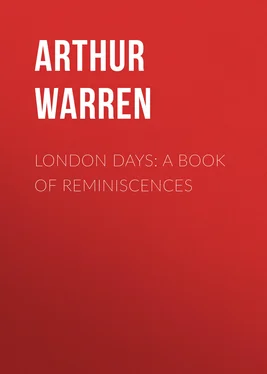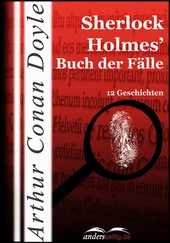Arthur Warren - London Days - A Book of Reminiscences
Здесь есть возможность читать онлайн «Arthur Warren - London Days - A Book of Reminiscences» — ознакомительный отрывок электронной книги совершенно бесплатно, а после прочтения отрывка купить полную версию. В некоторых случаях можно слушать аудио, скачать через торрент в формате fb2 и присутствует краткое содержание. Жанр: Биографии и Мемуары, История, foreign_antique, foreign_prose, на английском языке. Описание произведения, (предисловие) а так же отзывы посетителей доступны на портале библиотеки ЛибКат.
- Название:London Days: A Book of Reminiscences
- Автор:
- Жанр:
- Год:неизвестен
- ISBN:нет данных
- Рейтинг книги:5 / 5. Голосов: 1
-
Избранное:Добавить в избранное
- Отзывы:
-
Ваша оценка:
- 100
- 1
- 2
- 3
- 4
- 5
London Days: A Book of Reminiscences: краткое содержание, описание и аннотация
Предлагаем к чтению аннотацию, описание, краткое содержание или предисловие (зависит от того, что написал сам автор книги «London Days: A Book of Reminiscences»). Если вы не нашли необходимую информацию о книге — напишите в комментариях, мы постараемся отыскать её.
London Days: A Book of Reminiscences — читать онлайн ознакомительный отрывок
Ниже представлен текст книги, разбитый по страницам. Система сохранения места последней прочитанной страницы, позволяет с удобством читать онлайн бесплатно книгу «London Days: A Book of Reminiscences», без необходимости каждый раз заново искать на чём Вы остановились. Поставьте закладку, и сможете в любой момент перейти на страницу, на которой закончили чтение.
Интервал:
Закладка:
A certain splendid swagger departed from London Streets when the regiments quartered in town abandoned their gorgeous uniforms and dressed less like magnificos and more like fighting men. They were fighting men though, they and their successors who held back the outnumbering German rush from the Channel ports of France in 1914, as all the world knows, and none know better than the Huns. But they were dandies too, those earlier men, and they filled the eye. Their saucy scarlet, short-waisted jackets, their jaunty fatigue caps, their tight trousers with broad red stripes, on shapely legs which seemed tremendous in length, were at once the admiration of nursemaids and the envy of small boys, lending, as they did, colour and form to these dun streets. Will the glorious colossi who strode thus habited be seen again this side of Charon's ferry; or will their successors lead the simple life in khaki and puttees?
CHAPTER III
A NORMAN INTERLUDE
After a winter in London I went to Paris for a part of the spring, stopping on the way a day in Rochester (I had the Dickens fever then), and another day in Canterbury for the Cathedral's sake. A night boat, the ancient Wave, or the antediluvian Foam, took me to Calais, and through some delay on the line there was a wait of hours. But the night was fine, and I spent it roaming through and beyond the old town, getting forty winks afterward in the station, and a breakfast of hot chocolate and bread at a place facing the harbour where I watched the fishing boats put out on a convenient tide. In Paris I knew only one person, an American friend who was studying art, taking his lessons at Julian's, and slowly, yet certainly, learning that art was not for him. He introduced me to a lot of men who knew their way about, and soon I knew my way about as well as they did, possibly, in some directions, a little better, for, with one or two exceptions, I cannot remember any who were gifted with a faculty for anything but good-fellowship and for spending their allowances from home. They knew the jargon of the studios, but as Paris seemed full of men who could paint as well as they and were threatening to do it, the charming group dissolved in a year or two, one after another, returning to their homes in various parts of the world. Not one that I know of is living now, and nearly all whom I could trace in later years had gone into trade, and flourished there.
But my acquaintance with Paris had begun. It was to be extended in subsequent years. What chiefly remains in my recollection concerning those early days is that for the first time I had the consciousness of being in a foreign country. I never had that in England, no, not for a minute, and no one, then or since, ever tried to make me feel it there. Of course, part of the difference was due to language, but not all the difference. There were subtle differences in France, and some plain, outstanding ones. The English are kindly people, hospitable, and, if I must say so—and I think I must, having lived through three years of the great war with them, to say nothing of many preceding years—they are naïve. The Englishman, if he liked you, took you to his home, but he said that the Frenchman did not. But he did, I found. And I found that the Frenchman, if less kindly, was more polite. The Frenchman had either clearer ideas or none at all about other nationalities; the Englishman—but really, these reflections do not belong in this book, but in another, if anywhere. I will not prolong them here, but say only that I was in Paris fairly often after that first visit and that I liked it the more the more I knew it.
But I am forgetting my friend Monsieur Raoul de St. Ange. I would not willingly forget my friend St. Ange. In fact, I could not forget him. He was a delightful man of fifty or thereabouts, a dear and gracious person. I had met him in London where he was giving lessons in French, and trying to make a French weekly paper pay its way and earn him something over. He was of Norman birth, and had lived fairly well in Paris up to the time of the Commune, when he had been ruined. He emigrated to London. He had a wife and two small sons. The boys were about ten and twelve respectively. This little family lived in a little house at Shepherd's Bush. The house was very simple, but it was as neat as wax. I used to help St. Ange a little with the English section of his paper, and in return he gave me lessons in French.
One day he said to me: "I must go to Normandy; a week there. It will give me the greatest pleasure if you come." And so I arranged to meet him at Amiens on my return from Paris. He had some family affairs to settle, something to do with the children, and a bit of property that had been left in trust for them. In Normandy we would see some of his people, a bit of France from the inside not the outside. I jumped at the chance. We met at Amiens, and explored the Cathedral before doing anything else. He knew somebody there, or somebody knew of him, and we were taken all over the wonderful Cathedral, from roof to crypt. We were so long at this that we concluded to spend the night in Amiens, and push on, next morning, by train to a village some thirty miles or more away, which was one of the objectives of his visit.
The name of that village I have clean forgotten. It has passed like many other names that were supposed to be fixed there. But forgotten it is, although the place itself is associated with memories of rustic hospitality more generous than anything that has ever come my way. Well, we arrived at the village of the forgotten name, and we put up at the house of the station master, in the station building itself. There was no inn. The station master was somehow, somewhere, within St. Ange's circle of friends. He took charge of our kits and showed me to what I am sure was the best bedroom. I had a guilty feeling that the occupants must have turned out for my benefit; but one can only defer to the custom of the country.
Presently Monsieur Station Master, and Madame Station Master, and little Station Master fils appeared, each in best bib and tucker, and led the way across the fields, to a little thatched farmhouse two miles distant. The railway contingent evidently were making holiday. All the way we walked through fields of grain, in a wide path which came, by and by, to a little bridge over a chattering stream, and then to a road, and around a bend in the road to the farmhouse, thatched, moss and flowers growing in the thatch, and a family growing in the door, for the doorway was filled with humans of ages from eight to eighty, in rows and tiers. As we drew near there was such a display of waving handkerchiefs and joyous shouts as would have gratified William the Conqueror himself had he been passing.
St. Ange was smothered in embraces, and I was bidden in, not to the embraces, but to a seat in the fireside, after salutations all round. St. Ange had not been in these parts for twenty years. He was trustee for some of these younkers, and had now come to be relieved of his trust, as the younkers were of age in the eyes of the law. You would have thought that I was a benefactor, so generous were their attentions. Food and wine were pressed upon me. What the good folk were saying did not enter my comprehension; the twists of the Norman tongue were beyond me. But smiles are translatable in any language and so are hearty courtesies. Presently what appeared to be the whole population of the neighbouring countryside streamed in, and St. Ange and his American friend had to meet them all. We met like old friends. Then St. Ange took me to call upon some old folk in a cottage not far away. We must have been a couple of hours calling about. When we returned to the first place a dinner was ready for us, and we for it.
The fat of the land was before us. There was every kind of good thing that grew in Normandy. And there was wine of the country, and plenty of it. The triumph of the occasion was duck,—duck such as I never ate before, and have not eaten since, not even in Paris, where they have a subtle skill in cooking these things. I could write rhapsodies about that duck. When, even nowadays, I am seeking to whet appetite, I think of the ducks I ate in Norman cottages. No one has eaten duck who has not eaten it in Normandy where every housewife seemed to me a marvel of a cook. I was in Normandy a week, lunched and dined and supped in a different house each day—they were chiefly the homes of cottage folk—and, for abundance and good feeding, I still regard it as a land of miracle.
Читать дальшеИнтервал:
Закладка:
Похожие книги на «London Days: A Book of Reminiscences»
Представляем Вашему вниманию похожие книги на «London Days: A Book of Reminiscences» списком для выбора. Мы отобрали схожую по названию и смыслу литературу в надежде предоставить читателям больше вариантов отыскать новые, интересные, ещё непрочитанные произведения.
Обсуждение, отзывы о книге «London Days: A Book of Reminiscences» и просто собственные мнения читателей. Оставьте ваши комментарии, напишите, что Вы думаете о произведении, его смысле или главных героях. Укажите что конкретно понравилось, а что нет, и почему Вы так считаете.












